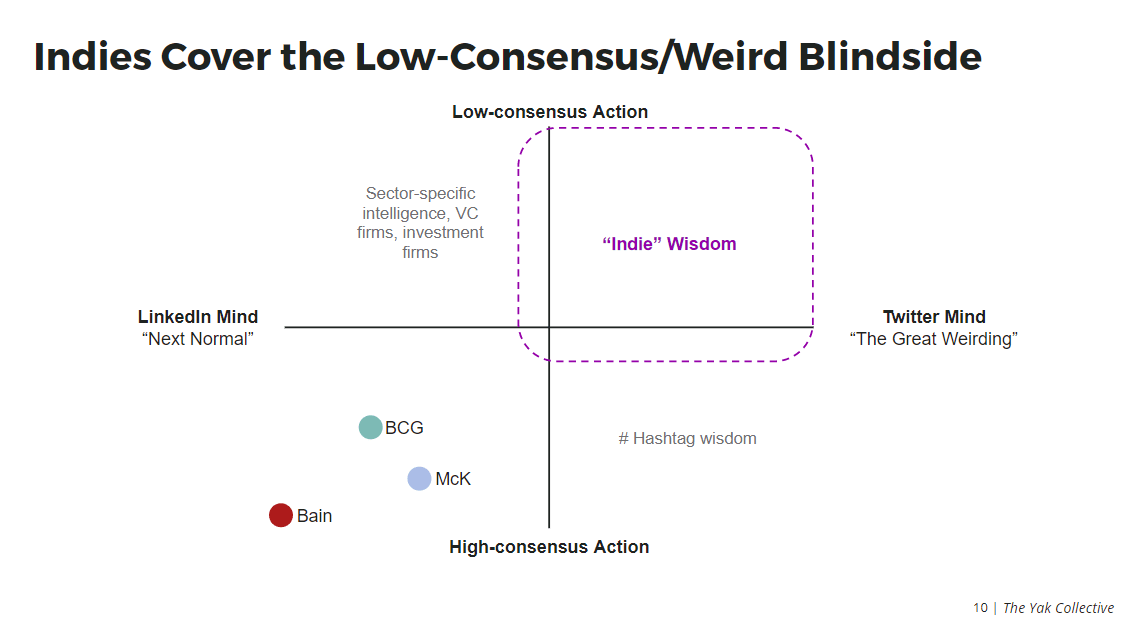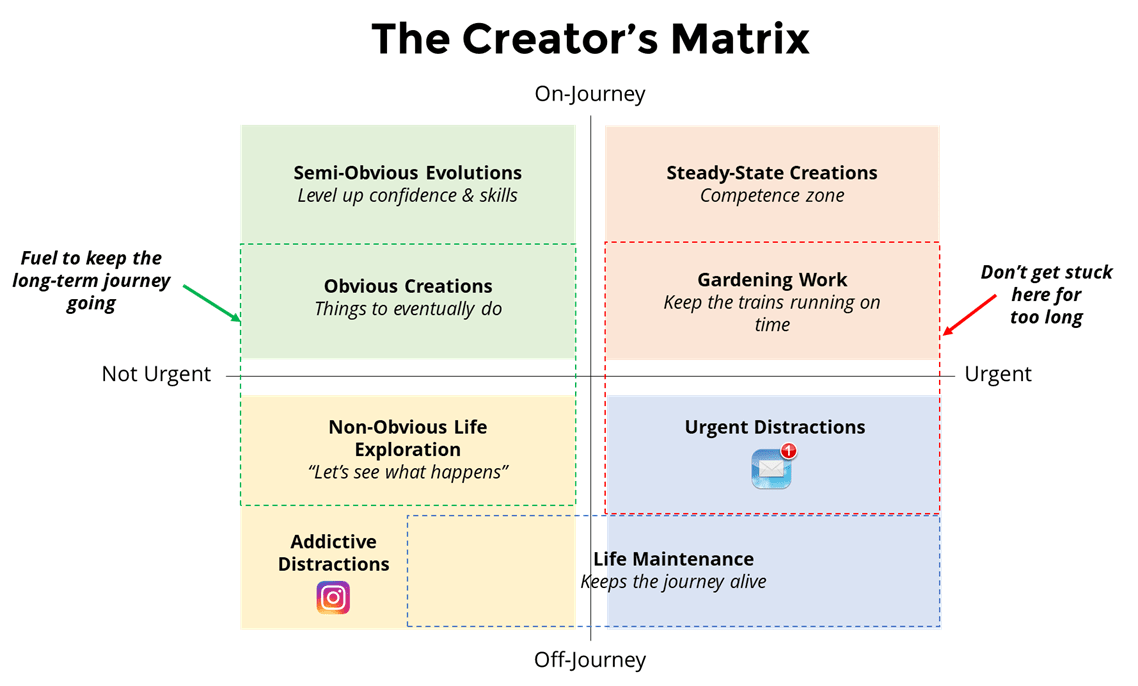(2020-05-02) Millerd Too Big To Think Beyond The Next New Normal
Paul Millerd: Too Big to Think - Beyond The "Next New Normal".
#1 The emerging “indie” ideaspace
Consider two trends from the last twenty years:
- An increasing number of talented people who, opting-out of the default path for a variety of reasons, have a lot of time to explore ideas that interest them
- Emergence of digital spaces where people can increasingly “find the others,” and test ideas through a digitally-enhanced peer-review
Many of the self-employed in category #1 are what we might “underemployed.” Not in the sense that they can’t find a job but in the sense that many would do more if they could find the interesting projects they want to work on. (underemployment)
Consulting Has Become Too Big To Think
The consulting industry attracts people that like ideas. However, my desire to go deeper was one of the biggest motivators for leaving the consulting industry. I wanted to grapple with interesting ideas and spend less time on bullshit.
While I would recommend spending 2-3 years at a consulting firm to many in the business world, over time it becomes tiring if you are more excited about ideas than landing new client projects and moving up the ladder.
They have become too big to think - trapped by their own scale and success. When BCG introduced the growth share matrix (product portfolio matrix) and experience curve (learning curve) in the late 1960s these were additive innovations, but the firm was small and scrappy with less than 100 consultants. Now BCG has more than 21,000 people.
an emerging community called the Yak Collective which has emerged around Venkatesh Rao’s writings on navigating life as an independent consultant.
Venkat sent out a provocation in the discord chat that we should make some sort of statement as a group of collective independents to go beyond the “new normal” narrative that the consulting firms were recycling from 2008. I quickly drafted some writing and shared it in the group. Venkat countered “I think we should do a deck.” What resulted was a project called “Don’t Waste The Reboot.”
I’m excited about what we created for two reasons. First, it is the first time I’ve worked on a truly emergent project on my own with more than three people
Second, in compiling a number of high-quality ideas in a short amount of time, it made it clear that there is an enormous blind spot in the thinking of current institutions.

My idea, which you’ll find at #15 in the deck, is about integrating chaos theory into organizations. My claim is that a lot of the thinking around fixing organizations starts with the belief that organizations are “broken.”... Instead, I believe that a lot of the potential for making organizations more robust to shocks like Covid-19 and becoming healthier already exists within most firms. The problem is that instead of harnessing this energy, managers operate with simple mental models and career incentives that push them to spend their time turning this natural complex energy (the “chaos”) into complicatedness.
You’d be an idiot to quit google, the thinking goes. Yet more and more people are walking away, leaving McKinsey, Google, Goldman, PwC, GE and others because they want to be working on something more interesting.
#3 PowerPoint Art.
I was playing around with a creators version of the Eisenhower Matrix. Here is what I came up with. What would you change?

Edited: | Tweet this! | Search Twitter for discussion

 Made with flux.garden
Made with flux.garden